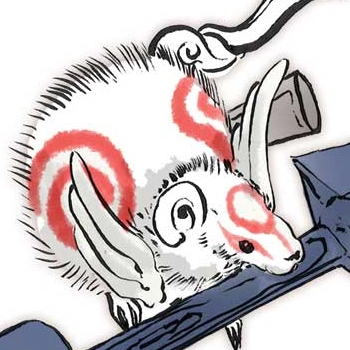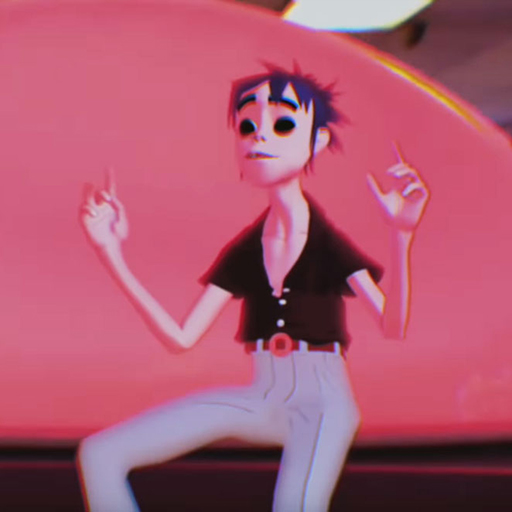Found this review elsewhere (credits at the end). First time I hear about it, curious to see what people think
I expect most people have heard of Return of the Obra Dinn. It’s a 2018 Game where you are investigating the fate of the crew of the ship Obra Dinn, and its perhaps even more mysterious return. Your task is to discover what became of each crew member (and passenger), with the aid of a watch that lets you return to the point of their death and a ledger that confirms correct fates in sets of three. It’s probably one of the best known and regarded indie games of recent years.
I started the game years ago, got stuck, and gave up. Last week I went back and started a new game, and completed it fairly quickly. As far as I know Obra Dinn is the only game where you play as an insurance investigator, which makes me regret never completing a Chartered Insurance Institute qualification as that might have given me an advantage.
To keep from going on too long I’m just going to talk a tiny bit about the gameplay, then focus on the atmosphere & story, before giving a few tips that I hope might help new players avoid frustration.
Gameplay
Return of the Obra Dinn is partly a game of deduction. But I think it’s a game of observation most of all. Paying attention to where people are, who they’re with, what accent they have, making sure you look all around, being careful to pick up on every mention of someone’s name.
It’s meant to be possible to complete the game without guessing at all, but I expect only a vanishingly small number of people manage this. How much to guess is really up to you. I generally held off unless I had 1 in 2 odds or was particularly struggling. (I was more flexible with the notoriously difficult Chinese topmen.)
Atmosphere & story
To me Return of the Obra Dinn is a triumph of atmosphere and empathy. The stark presentation, the design of the scenes, the vivid voice acting, the need to pay attention to what’s around you. There are few, if any, games that have made me feel for the characters so much; the crew cracking as the voyage goes from bad to worse.
There are scenes that stay vividly in my mind: on a walkway around the edge of a deck, peering in through narrow viewports to a scene of terror and violence; perched on the rigging as a lightning strike cracks the sky; two characters sitting in shock by the bloody body of another in the mess, one holding his head in his hands.
I wonder if this is helped by the fact that you don’t interact with the characters. There’s never a reason to think of them instrumentally, as a means to a gameplay end, and they will never react (or fail to react) to you in ways that seem odd or limited.
What feels less successful is the overall story and characterisation. The story never seemed to fully come together. It mostly followed logically enough from an initial incident, but there were a couple of things that seemed to come out of left-field (eg. the background to “justice at sea”). The background to what’s going on should be mysterious but I never felt quite satisfied with how it was set up. Of course it’s always possible I missed some important details.
If anything I think the limited characterisation matters to me more than the story. It was hard to get a read on the characters and how their feelings and knowledge changed over the course of the story. I would have loved to get a better idea of the relationships between the officers, why some groups formed, exactly what motivated some actions, even why some people were on the ship at all. This would add depth to the scenes and tie them together better.
That kind of detail is always going to be difficult when you have 60 odd people to investigate, and you’re only seeing flashes of them at particular moments. It’s perhaps a problem that can’t be solved within the format of the game, without incongruously jamming in extra information or scenes.
Tips
I don’t want to stop people figuring things out how to approach the game by themselves, but these are a few things that I wish I’d thought of when starting the game. The first two are to help keep track of what you’re doing, the last is something that can potentially screw you over a bit if you don’t do it.
-
Write down fates you’ve tried which aren’t correct: when you verify three fates, you know that every other fate you’ve put in is wrong.
-
Write down your guesses at matching names and faces: you’ll usually have a mix of people you’re certain of (but don’t know the fate of) and those you’re not sure of, so it helps to know the difference.
-
Use fates you’re certain of strategically: if you’ve got three fates you’re sure of, fill in two and then test out one you’re unsure of.
Conclusion
Return of the Obra Dinn is a highly praised game so you probably don’t need me to recommend it. What I will say is that it worked for me. I got caught up in the atmosphere of the game, which doesn’t happen easily, and the deduction in the game struck that tricky balance between challenging without being frustrating (well, second time round).
Also the music gets stuck in my head really badly.
One of my favorite games, and one of the ones I most wish I could experience again for the first time.
IMO the best indie game currently on the market overall, and definitely the by-far leading in puzzle/logic games.
Such an amazing experience. The underlying pacing is so genius, where the game snowballs. Slowly at first, then faster and faster and faster as you finish.
Also, that scene with that music is just amazing when it kicks in, and really threw me for a loop when it happened. “The fuck?!”
Thank you for your comment!
I think it’s a really clever game, though sometimes a bit too clever for its own good. The ‘aha’ moments I had throughout were extremely satisfying, especially the ones that made you think outside of the box (like one particular puzzle that made you look somewhere you wouldn’t expect). But as you say, those last few characters did require some guesswork because the clues were extremely vague/esoteric, and that made the game fizzle out a bit at the end.
Overall though it’s among the best puzzle games I’ve ever played.
it’s a standout of its genre, definitely. i thoroughly enjoyed my time with it. i have no nostalgia for the apple ][ style it emulates but it really serves the art direction brilliantly.
i had a discussion with a friend about the obra dinn a few weeks ago. i told him how i enjoyed the “hidden in plain sight” fact that the letter you get with the pocket watch is signed “Henry Evans” and he basically lit up. turns out he had been stuck on the two ladies that were passengers, and he connected in real-time what must have happened to them just because i mentioned the name. i love that it’s the sort of game that gives you epiphanies.
Incredible game. You should play Papers, Please which is also developed by Lucas Pope. The man is a game design genius.
I loved the game. We put the soundtrack on all the time still. Great art form from Lucas Pope
I didn’t like it, myself. I played through to the end and found it incredibly tedious for what you got out of the story, which was basically just a tale about a macguffin in the ocean with sea monsters. The biggest complaint was how painful they made navigating the memory scenes. Every time you want to do anything, you first gotta backtrack all over the ship and you gotta wait through these intro and outro cutscenes and music, and it got old very fast for me. I also got tired of the entire gimmick about 25% in, as there is no variation to the puzzles in the game, they are all set up the same—try to identify people based on surroundings and descriptions, 60+ times. The art direction was really impressive at first, but quickly became dull to me around the time the gimmick started the wear thin.
Tl;dr: it’s admittedly a very creative take on a mystery game, but unfortunately playing through to the end is tedious and lacks needed QoL features.
This was my experience. There’s a certain motivation missing in a lot of mystery games where the result is going to be something highly inconsequential.
In Ace Attorney, you reveal a mystery’s real killer, and get to crumple their ego. To me, that’s a hard high to beat. I got the early, “bad” ending in Obrah Dinn and didn’t even care to keep going for the rest. I was getting no satisfaction in filling in forms from deaths we already know every interesting detail about.
I just played it and beat it. It was good and has a great soundtrack, it’s just a shame that you can really only play the game once. I kind of wish there had been some sort of randomization mechanic added to it so that you didn’t play the same story twice and had a different crew each time. Otherwise though, an interesting little game that had me hooked.
I LOVED it but at that time I was not patient enough to be curious about the various clues, and investigate everything available to explore. I ended up looking for some hints on the net instead of trying harder. It’s one of the best investigative games released. I still prefer Outer Wilds and Golden Idol, but Obra Dinn has such strong narration.
I can’t wait 10 year to forget everything that happened in the game so I could play it again.
Also there is this fire meme: https://www.youtube.com/watch?v=2EKPbEQbzrk
I love it!
I consider it to be the best “detective” game ever made. Other detective games, like Phoenix Wright, can easily be brute forced. Just exhaust all dialogue options, and in the case of game over, just repeat all the correct answers until you’re back on track.
The system where correct answers are revealed after five correct guesses is genius. It discourages brute forcing, while maintaining a short feedback loop so the player knows they’re making progress. I wish more games continued on this idea.
Only thing I don’t like about it is that I can only play it for the first time once. It has almost no replay value.
I didn’t, because I felt utterly clueless the whole time and only got the most obvious clues. I felt like the graphical style obscured a lot of the little detailed clues.
I think I was kinda in the same boat as you.
In theory, I loved the fact that if you wanted to check, the game would tell you when you theoretically had enough information to identify one of the crew or passengers, so you knew where to focus your thinking. But I got stuck on some characters who seemed to me to be implied or hinted, but for whom I didn’t think I had positive proof.
I eventually got tired of continuously reviewing the same scenes over and over, looking for some detail that I had overlooked, and read a walkthrough to find out what I was missing. It seems that I hadn’t missed anything, and “an educated guess” was the standard expected by the game, not “definitive proof”. But I was burnt out with the game by that point and stopped playing.
It was the same for me, eventually I uncovered too many scenes at once so I was constantly going over the same scenes without progressing, there were too many possibilities and even guessing failed. Perhaps I should just start over.
I was in a similar boat (heh!) with Outer Wilds, eventually I stopped progressing and gave up, the repetition without discovery wasn’t fun anymore.
It just makes me feel like I am too stupid for these games? And that’s no fun.







